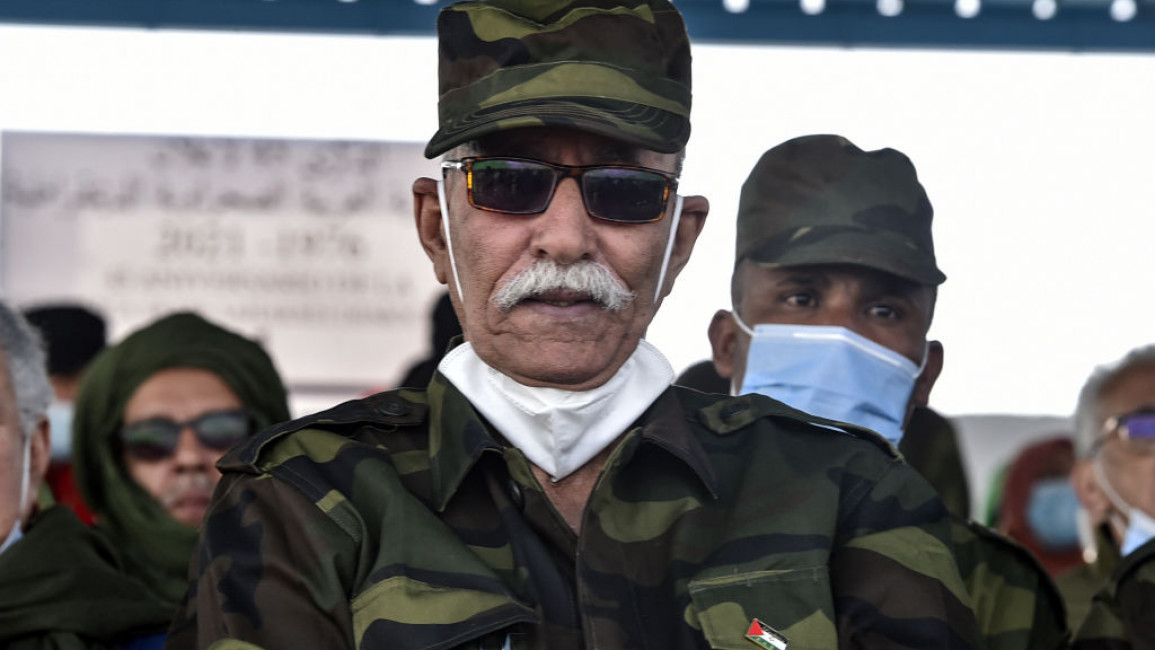Polisario leader threatens Spain after policy shift over Western Sahara
Brahim Ghali, the leader of the Polisario Front, said on Tuesday that "Spain has pending bills that one day it will have to pay," during his first interview after Spain's policy shift regarding the Western Sahara dispute.
In a recent interview with the Spanish TV channel Telecinco, the leader of the separatist movement tackled the fraying relationship between the Front and the Spanish government after Madrid's backed Morocco's position on Western Sahara.
"Our official relations are broken," Ghali said.
On 18 March, Spain reversed decades of neutrality on the Western Sahara conflict after announcing its support for Morocco's autonomy plan for the disputed territory, which offers limited self-government for the Saharawi people within Rabat's sovereignty.
Since decolonising the territory in 1975, Spain has tried to appear neutral on the issue and managed to keep good ties with the separatist front.
However, Madrid's recent decision to support the UN-backed Morocco's autonomy plan has angered the Front and its historical ally Algeria, who both advocate for a fully independent Sahrawi Arab Democratic Republic in the province.
During the interview, Ghali blamed the Spanish government for submitting to Morocco's blackmailing, in a reference to the immigration crisis that erupted between on the Moroccan-Spanish border in Ceuta last year, in which more than 8,000 people crossed into the Spanish-controlled enclave.
The another crisis occurred a month late on Ghali's visit to Madrid for medical reasons. Madrid, at the time, accused Rabat of diplomatic blackmail.
Ghali has also accused the Spanish government of betrayal, saying, "We [Polisario] are a few kilometers from the Canary Islands [a region controlled by Spain]… the solution will arrive… the Sahrawi people will achieve their goals. It's just a matter of time."
Between the 1970s and 1980s, the first years of its guerrilla towards independence, the Polisario Front carried out attacks against Spanish fishermen between the Saharan regions and the Canary Islands.
Following the attacks, Spanish authorities ordered Polisario delegates in Madrid to leave the country.
Founded in 1973, The Polisario Front, the Saharawis' self-proclaimed representative, grappled for decades with Morocco over the sovereignty of Western Sahara; a sovereignty they both claim but the UN recognises neither.
Their 16-year-long guerrilla war ended in 1991, when the UN announced a ceasefire in the province and sent its peacekeeping forces to Laayoune, the biggest city in the disputed territory, to monitor a referendum on the territory's status.
The vote was set for 1992 but was aborted when Morocco refused to accept any vote that allowed for the independence of the territory, saying that only "autonomy" was on the table.
Since then, numerous UN-sponsored talks have failed to make a breakthrough, with each side further entrenching its position.



